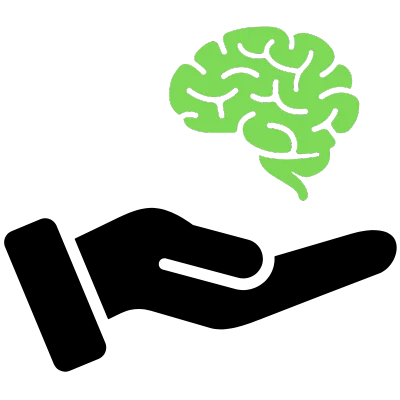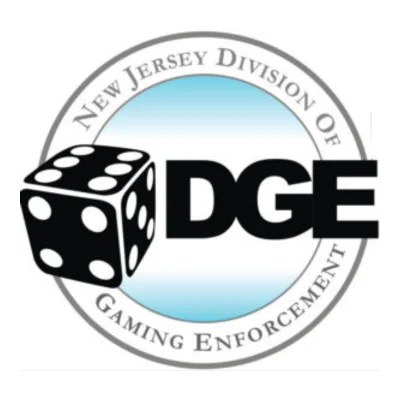The Importance of Taking Breaks: Healthy Gambling Habits

Moderation is the key to almost everything in life. Remember that time you ate an entire family-sized bag of Cool Ranch Doritos in one sitting and gave yourself a tummy ache? No? Just us, then? The point is this: it’s fun—until it’s not.
While you may not get a sour stomach from playing too much online poker, the analogy stands; it’s a great way to pass the time and have fun, but you have to check yourself. It’s an escape, a little excitement, and a diversion from everyday life. Want to get away? Open up a casino app and play your go-to game. That could be poker, roulette, or taking a solo spin with the slots—gambling has a ton to offer in terms of excitement, not to mention the chance to win big money.
Like everything fun in life, too much of a good thing can turn bad in a heartbeat, so self-discipline is always important. The line between casual enjoyment and problematic gambling can be thin—almost invisible—and the risks of gambling excessively are very real. From financial losses to emotional stress, the consequences of overindulgence can be a hazard to your health.
That’s why taking regular breaks is so important. Putting a pause on your play means you can keep your gambling activities fun and prevent it from becoming a problem. Healthy gambling habits are the secret to responsible gambling, and we are going to teach you everything you need to know so it stays that way!
Understanding the Psychology of Gambling
Gambling is usually viewed through the lens of entertainment and fun, but just beneath the surface is a complicated and nuanced tangle of psychological factors that drive this behavior. To understand why gambling can be so compelling—and sometimes problematic—we have to understand concepts like “flow,” time perception, and the role that dopamine plays in reinforcing gambling habits. These psychological elements are major factors in why gambling can become so immersive and difficult to control for some players.

The Concept of ‘Flow’ in Gambling
The idea of “flow,” introduced by psychologist Mihaly Csikszentmihalyi, refers to a state of total immersion and focus in an activity. In this state, people lose track of time and are fully absorbed in what they are doing. This concept is usually talked about in the context of creative activities or sports, but it also applies to gambling.
In gambling, flow can happen when players become super engaged with a game, whether it’s poker, roulette, blackjack, or slot machines. The challenge or skill that’s needed to play these games can introduce a flow state, where players are totally engrossed and lose awareness of the time that is passing. This state is highly rewarding and can make it difficult for gamblers to stop, contributing to way longer gambling sessions.

Distorted Time Perception
One of the more interesting aspects of gambling is how it can distort a person’s perception of time. When gamblers enter a flow state, their sense of time becomes skewed. Hours can pass by unnoticed, and the usual markers of time—like hunger or fatigue—disappear into the ether. This distortion happens because the brain’s focus is entirely on gambling, which creates a tunnel vision effect.
Slot machine players, for instance, have described being in a “slot machine zone” where they lose track of time completely. This altered state is not just a casual occurrence but a well-documented phenomenon that underscores the focus and engagement players have with the game. The lights, sounds, and the fast pace of play all contribute to this trance-like state, making it hard for players to pull away.

The Role of Dopamine
Dopamine, the neurotransmitter that is associated with pleasure and reward, plays a big role in gambling behavior, too! When people gamble, their brains release bursts of feel-good dopamine in response to wins, close calls, and even the hope of a potential win. This release generates a feeling of excitement and satisfaction, which reinforces the gambling behavior.
The intermittent nature of rewards in gambling—where wins are always unpredictable—makes this effect even stronger. This unpredictability triggers more dopamine releases compared to predictable rewards, making gambling particularly addictive. Over time, the brain begins to crave the dopamine rush, pushing people to keep gambling despite any negative consequences.
Research has shown that dopamine not only influences the pleasure associated with gambling but also impacts the decision-making processes. Gamblers may become more prone to taking risks and less sensitive to potential losses, driven by the desire to experience the dopamine highs again.
The Risks of Continuous Gambling
When gambling goes from an occasional pastime to a continuous habit, that’s a big red flag to hit the pause button. The dangers aren’t just financial—they wander into mental and physical health issues territory, too. Knowing what these dangers are is a necessity for anyone who engages in gambling, whether it’s a casual or regular thing.
Financial Risks: Chasing Losses and Overspending
One of the most important financial hazards of continuous gambling is the behavior known as “chasing losses.” This happens when a gambler continues to bet, trying to recoup previous losses. The psychological factors that drive this behavior include the following:

- Sunk Cost Fallacy: Gamblers feel compelled to continue gambling because they have already invested significant time and money. They irrationally believe that they have to keep playing to recover their losses.
- Loss Aversion: People tend to experience losses way more intensely than gains, and this emotional response can drive gamblers to keep betting in an attempt to avoid the feeling of losing.
- Gambler’s Fallacy: This is the mistaken belief that past losses increase the chances of future wins. Gamblers might think they are “owed” a win after a series of losses, making them bet more aggressively.
Chasing losses can quickly spiral out of control with severe financial consequences—gamblers resort to using credit cards, taking out loans, or borrowing money so they can keep gambling, resulting in debt accumulation and, worst case scenario, bankruptcy. And because it’s now so easy to gamble online, particularly with cryptocurrencies, it can exacerbate this issue, making it easier to lose track of your spending.
Overspending is another major financial risk associated with continuous gambling. Without strict budgeting and self-control, gamblers can easily spend more than they can afford. All reputable and licensed online gambling sites provide users with responsible gambling tools like deposit limits and self-exclusion features to manage spending, but not all gamblers take advantage of or even use these resources. The temptation of quick wins can turn into reckless spending and big financial losses.
Mental Health Risks: Stress, Anxiety, and Addiction
Gambling without taking breaks can also have serious effects on mental health! The constant pressure to win and the emotional seesaw of highs and lows can result in chronic stress and anxiety. Gamblers can experience heightened levels of anxiety and depression due to financial strain and the social stigma associated with gambling addiction.
Isolation is another danger, as people in the midst of a streak could withdraw from social interactions so they can concentrate on gambling. This can result in loneliness and exacerbate feelings of guilt and shame, making it harder for them to get help. More often than not, the stigma surrounding gambling addiction prevents those struggling from reaching out for support, which causes their mental health issues to get worse.
Other mental health risks include the following:

- Depression: The cycle of losing money and the stress of trying to win it back can lead to serious depression or depressive episodes.
- Obsessive Behavior: Gambling can become an obsession, spiraling into compulsive behaviors that are really difficult to control.
- Suicidal Thoughts: In extreme cases, the mental health impacts of gambling can turn into suicidal ideation and actions.
Recognizing the signs of problem gambling and getting support through therapy, support groups, or helplines is the best way to manage these mental health risks that come from gambling addiction.
Physical Health Risks: Fatigue, Poor Posture, and Neglecting Basic Needs
You thought the dangers were just financial and emotional? You thought wrong, and this was news to us as well! We had no idea that there are actually physical health risks of prolonged gambling—they could become serious and might include the following:

- Fatigue: Long gambling sessions can lead to sleep deprivation and exhaustion, impairing judgment and decision-making.
- Poor Posture: Spending extended periods sitting without proper ergonomic support can cause back pain, neck strain, and other musculoskeletal problems.
- Neglecting Basic Needs: Gamblers might neglect eating, hydrating, and maintaining personal hygiene, leading to more severe health problems like gastrointestinal issues from poor eating habits and dehydration-related complications.
- Weight Gain or Loss: Continuous gambling can disrupt regular eating habits, leading to weight gain or loss.
- Eye Strain: Prolonged screen time, especially in online gambling, can lead to eye strain and vision problems.
- Heart Problems: The stress of gambling can contribute to cardiovascular issues, especially in those with pre-existing conditions.
Knowing what the risks are is important for promoting responsible gambling habits and getting help for those struggling with gambling addiction. Recognizing the financial, mental, and physical health risks associated with continuous gambling can help people make better and more informed choices so their relationship with gambling stays a healthy one!
Benefits of Taking Regular Breaks
One of the best ways to gamble in a healthy manner is to take regular breaks. Why? So you can make better decisions, keep your emotions in check, and take the time to reassess your budget if need be and the time you’ve been at the tables.

Improved Decision-Making and Risk Assessment
Taking regular breaks during gambling sessions helps to clear your mind and reset your focus. Continuous play without breaks results in decision fatigue, where your ability to make sound decisions deteriorates over time. By stepping away periodically, you allow yourself to regain mental clarity, which is crucial for making better gambling decisions and assessing risks more accurately.
Research shows that taking breaks prevents burnout and helps maintain focus, leading to more rational decision-making processes. This is particularly important in gambling, where impulsive decisions result in significant financial losses. By pausing, you give yourself the chance to think more clearly about your next move and avoid rash decisions driven by fatigue or frustration.

Better Emotional Control and Reduced Impulsivity
Gambling can be emotionally taxing due to its ups and downs, which can affect your ability to control impulses. Regular breaks give you the time to step away and better manage these emotions. This is necessary because gambling decisions influenced by strong emotions, like frustration from losses or euphoria from wins, can result in bad outcomes.
By taking a break, you can practice emotional regulation techniques, like deep breathing, meditation, or mindfulness, all of which help to keep your mindset calm and collected. This lessens the likelihood of making impulsive bets that are powered by temporary emotional states. Keeping your emotional cool goes a long way in gambling!

Maintaining Gambling as a Fun Hobby Rather Than a Compulsion
One of the biggest dangers of continuous gambling is that it morphs from being a fun pastime to a compulsive behavior. Regular breaks help to keep your gambling habits in check so that you remain in control. They are an opportunity to think about your motivations for gambling and confirm that it is still a source of enjoyment instead of an escape from problems or a way to chase losses.
When gambling is kept within boundaries through regular breaks, it is likely to stay a fun activity. This balance helps prevent the obsession with gambling, promoting a healthier approach where gambling is just one of many recreational activities in your life.

Opportunity to Reassess Budget and Time Spent
Regular breaks also provide the perfect opportunity to reassess your budget and the time you have spent gambling. Setting a clear budget and adhering to it is a cornerstone of responsible gambling. During breaks, you can review your spending and make sure that you are within your limits, helping to avoid major financial losses.
In addition to budget reassessment, breaks allow you to evaluate the amount of time you dedicate to gambling. This reflection helps you maintain a healthy balance between gambling and other life activities, preventing it from becoming an overwhelming focus. Using tools like deposit limits and self-exclusion programs further supports this process, offering structured ways to manage your gambling habits responsibly!
Strategies for Implementing Breaks
One of the best ways to achieve a balance is by taking regular breaks—this approach not only helps maintain your focus and decision-making abilities but also keeps the gaming within healthy limits. Below are some strategies that will help you successfully integrate breaks into your gambling routine!

Setting Time Limits for Gambling Sessions
Establishing clear time limits is one of the most effective ways to manage your gambling—it means setting a specific duration for your gambling sessions and sticking to it no matter what. Time limits help prevent the detrimental effects of long, uninterrupted gambling sessions, like decision fatigue and increased risk-taking. All online gambling sites and apps have features that allow you to set these limits, guaranteeing that you don’t get carried away and divert from your planned schedule.

Using Alarms or Reminders to Prompt Breaks
To make certain that you take regular breaks, you can set alarms or reminders! By deciding on specific intervals, like every 30 minutes or an hour, and setting an alarm, you design a structured schedule that alerts you when it is time to step away from the game regularly. These breaks clear your mind, allowing you to make smarter decisions and avoid getting caught up in the heat of the moment.

Engaging in Alternative Activities During Breaks
During these breaks, doing things that are completely unrelated to gambling is a good idea. You could go for a walk, hang out with friends, read a book—really anything that occupies your mind and decreases the urge to go right back to gambling. These other activities don’t just give you a mental break; they also contribute to a well-rounded lifestyle.

The ‘20-20-20 Rule’ Adapted for Gambling
The “20-20-20 rule,” which originated with the goal of reducing eye strain from screen time, can be adapted for gambling. Every 20 minutes, take a 20-second break and look at something 20 feet away. This simple act helps decrease mental fatigue and keeps your mind fresh. Implementing this easy little task, in addition to taking regular breaks, will keep you from becoming too engrossed in the game and losing all track of time.

Setting a Schedule for Breaks
Creating a specific schedule for breaks within your gambling sessions is a great tool for discipline. For example, taking a 10-minute break every hour provides a structured way to manage your time. This approach assists in preventing prolonged gambling sessions and allows you to think about your gameplay and make any necessary adjustments.

Avoiding Gambling Triggers
Changing your environment to avoid triggers can also be a solid way to manage your gambling habits. If certain places or routines trigger the urge to gamble, avoiding these can lessen the temptation. This could look like staying away from casinos or online gambling sites—changing your environment helps reduce the risk of falling back into continuous gambling.
Tools and Technologies for Responsible Gambling
Gambling responsibly is a must if you want it to stay a form of entertainment without adverse effects. There are tools and technologies that have been developed to assist people in managing their gambling habits, including comprehensive self-exclusion programs, time tracking and limit-setting features in online casino apps, and mobile apps that are designed specifically for responsible gambling.
Overview of Self-Exclusion Programs
Self-exclusion programs are super important for those who need to take a break from gambling because they are developing or already have gambling problems. These programs allow people to voluntarily ban themselves from taking part in gambling activities for specified periods, ranging from one year to a lifetime. They cover physical casinos, online gambling, and fantasy sports.

National Voluntary Self-Exclusion Program (NVSEP): This program aims to provide a unified system across the U.S., allowing people to exclude themselves from all gambling activities nationwide. This initiative by idPair, Inc., is expected to streamline the self-exclusion process and improve its effectiveness.

Pennsylvania: The Pennsylvania Gaming Control Board offers a self-exclusion program that covers casinos, online gambling, video gaming terminals, and fantasy sports. Individuals can enroll for one year, five years, or a lifetime.

Ohio: Ohio’s exclusion program includes options for one-year, five-year, or lifetime bans and covers casino and racino facilities, as well as sports gaming.

Virginia: The Virginia Lottery provides a Voluntary Exclusion Program that covers casino gaming, sports betting, account-based lottery games, and horse racing. The program offers exclusion periods of two years, five years, or a lifetime.

Washington State: This program allows people to exclude themselves from all house-banked card rooms statewide. NOTE: Tribal casinos are not currently included in this program.

Massachusetts: The Massachusetts Gaming Commission offers a Voluntary Self-Exclusion Program that allows individuals to exclude themselves from all forms of gambling provided by licensed operators in the state. Enrollment is accessible through several means, including in-person, online, or via phone, so that people can easily register.

New Jersey: The New Jersey’s Division of Gaming Enforcement offers a self-exclusion program that includes options for both in-person and online registration, covering all casino gaming and internet gambling activities.
Time Tracking and Limit-Setting Features in Online Casino Apps
Online casinos have integrated useful features to help players manage their gambling activities responsibly. These tools include the following:

- Deposit Limits: Players can set daily, weekly, or monthly deposit limits to control their spending. This helps prevent overspending and ensures that gambling remains within the individual’s budget.
- Reality Checks: These are periodic notifications that remind players of the time they have spent gambling. This feature helps players stay aware of their gambling duration and encourages them to take regular breaks, which is important for keeping focus and preventing fatigue.
- Betting Limits: Self-imposed betting limits let players restrict the amount they can wager in a single session. This feature helps manage spending and decrease the danger of big financial losses.
Mobile Apps Designed to Promote Responsible Gambling
A few mobile apps have been developed to assist people in managing their gambling habits while promoting responsible gambling. These apps have features like self-assessment tools, tracking of gambling activities, and access to valuable support resources.

- Gamban: This app blocks access to gambling websites and apps across all devices, helping users avoid online gambling temptations.
- BetBlocker: Similar to Gamban, BetBlocker restricts access to thousands of gambling sites. It is a valuable tool for those who are looking to limit their exposure to online gambling opportunities.
- GamTalk: This app provides online support groups where individuals can share their experiences and receive encouragement from others facing similar challenges. These communities offer a supportive environment that is vital for those who are struggling with gambling addiction.
- Self-Assessment Tools: Most reputable gambling apps include tools that let users evaluate their gambling behavior so they can identify any potential problems early on. This proactive approach enables them to reach out for help before the issue escalates any further.
Self-exclusion programs, time tracking and limit-setting features in online casino apps, and mobile apps designed for responsible gambling are essential tools in promoting healthy gambling behaviors. These technologies provide the necessary support and structure to help individuals manage their gambling activities, ensuring that gambling remains a fun and controlled part of their lives. By utilizing these tools, gamblers can better protect themselves from the dangers that are associated with excessive gambling.
Creating a Balanced Lifestyle
Maintaining a balanced lifestyle is also important for overall well-being, especially when you are an avid gambler! Balancing your gaming with other interests, social activities, and regular exercise can help keep it as a fun hobby rather than a problematic behavior. Here’s why and how to achieve this balance.

Importance of Maintaining Other Hobbies and Interests
Having hobbies and interests outside of gambling is very important for a few reasons—they provide mental and emotional benefits that contribute to a healthier lifestyle. Hobbies can reduce stress, improve creativity, and boost happiness. They provide a sense of accomplishment and can improve your self-esteem, which can be hard to come by if you are spending too much time gambling.
Hobbies also give you a much-needed break from the pressures of daily responsibilities. When you immerse yourself in an enjoyable activity, your brain gets a chance to rest and recharge, leading to fresh ideas and perspectives. It’s said that artistic hobbies like painting or playing a musical instrument can improve brain function and even prevent cognitive decline later in life!
And let’s not forget about the social connections you can make when you join a club or a group that’s related to your interests—it opens doors to new friendships and social networks, which are what life is all about!

Balancing Gambling with Social Activities and Relationships
Balancing your gambling with social activities and sustaining healthy relationships is a big part of making sure that gambling does not become an isolating or dominant part of your life. Taking part in social things helps build strong relationships, provide emotional support, and decrease feelings of loneliness, which can sometimes lead to excessive gambling.
Incorporating social activities into your routine can be as simple as scheduling regular meet-ups with friends and family, taking part in group sports, or joining clubs that match your interests. These activities not only keep you engaged with others but also help you build a community and support network.
Encouraging and supporting each other’s hobbies within a relationship is also beneficial, creating a sense of validation and appreciation, and strengthening the connection between partners. When partners show real interest in each other’s hobbies, it builds shared respect and understanding, which is a necessity for a healthy and happy relationship.

Regular Exercise and Its Impact on Reducing Gambling Urges
Regular exercise is another solid strategy for bolstering a balanced lifestyle and lessening the itch to gamble. Physical activity has a ton of benefits, including stress reduction, mood improvement, and overall better mental health. Exercise releases endorphins (those natural mood lifters), and can help curb the emotional swings that can sometimes be associated with gambling.
Incorporating regular physical activity into your routine doesn’t have to look like hitting the gym every single day! Simple things like walking, jogging, cycling, or yoga can be really helpful. These exercises not only improve physical health but also give you more mental clarity and decrease anxiety, which makes it easier to keep a lid on any gambling urges.
Additionally, participating in group sports or exercise classes can combine the benefits of physical activity with social interaction, further enhancing your overall well-being. This dual benefit helps make sure that gambling remains a balanced part of your life, not an overwhelming focal point.
Recognizing Warning Signs
Self-awareness is your best friend when it comes to acknowledging that your gambling habits are becoming problematic. It’s also important for staying in control and for realizing when it’s time to get help. This means noticing when you aren’t taking your gambling breaks seriously, spotting the red flags for possible gambling problems, and knowing when and how to get professional help.

Signs That Breaks Are Not Being Taken Seriously
One of the first indicators that gambling breaks are not being taken seriously is the inability to adhere to self-imposed limits. If a person sets specific time or spending limits but consistently exceeds them, it is a clear sign that breaks are not being respected. This usually manifests as prolonged gambling sessions and the rationalization of continued play despite the intent to stop.
Another sign is neglecting other responsibilities and interests. When gambling starts to encroach on time meant for work, family, or other hobbies, it suggests that breaks and boundaries are not being maintained. Additionally, emotional responses like irritability or restlessness when unable to gamble demonstrate a dependency that undermines the effectiveness of taking breaks.

Additional Red Flags for Potential Gambling Problems
- Increased Tolerance: Needing to gamble with increasing amounts of money to achieve the same thrill can indicate developing tolerance, which is a common sign of addiction.
- Withdrawal Symptoms: Feeling restless, irritable, or anxious when attempting to cut back on gambling is a clear indication of dependency.
- Preoccupation with Gambling: Constantly planning or thinking about gambling, even when engaged in other activities, is a big red flag.
- Gambling to Escape: Using gambling as a way to escape from problems or relieve feelings of helplessness, guilt, anxiety, or depression is an unhealthy coping mechanism.
- Financial Recklessness: Spending money intended for essential expenses like rent or bills on gambling, or asking others to help bail you out of financial trouble, indicates severe financial problems related to gambling.
- Risking Important Relationships: Neglecting family and friends or experiencing strained relationships due to gambling habits is a pretty telling indicator of a problem.
When and How to Seek Professional Help
Think you might need help? Recognizing when to get it is half the battle when it pertains to addressing gambling addiction. Look below for guidance and resources:

- Acknowledging the Problem: The first step towards recovery is recognizing and admitting that there is a problem. This means listening to concerns expressed by friends, family, or colleagues.
- Seeking Counseling or Therapy: Professional counseling can provide the support needed to overcome gambling addiction. Cognitive-behavioral therapy (CBT) is particularly effective in helping individuals understand the triggers of their gambling behavior and develop healthier coping mechanisms.
- Joining Support Groups: Organizations like Gamblers Anonymous offer support through peer-led meetings where people who are struggling with addiction can talk about their experiences and get encouragement from others who are going through the same thing. These groups provide a sense of community and accountability that can be very beneficial during recovery.
- Using Self-Exclusion Programs: Use self-exclusion programs that allow you to ban yourself from gambling establishments and online platforms. This is a practical step to limit access and take away the temptation to gamble.

Organizations and Resources
- Gamblers Anonymous: A 12-step fellowship of men and women who share their experience, strength, and hope to solve their common problem and help others do the same.
- National Council on Problem Gambling (NCPG): Provides help for problem gamblers and their families through programs such as a 24-hour confidential helpline, prevention, education, treatment referral, and public awareness.
- GamCare: Offers info, advice, support, and free counseling for the prevention and treatment of problem gambling.
- Gambling Therapy: Provides online support for those affected by gambling problems. Services include online groups and forums, a helpline, and a comprehensive database of resources.
- BeGambleAware: Provides info to help people make smart decisions about their gambling. It also offers a helpline and live chat services.
- SAMHSA’s National Helpline: A confidential, free, 24-hour-a-day, 365-day-a-year information service in English and Spanish for individuals and family members facing mental and/or substance use disorders. Phone: 1-800-662-HELP (4357)
Addressing gambling problems early can prevent more complications and promote a healthier, more balanced lifestyle. If you or someone you know is struggling with gambling addiction, reaching out for help is a good first step towards recovery.
Conclusion: Pump the Brakes When Betting
Having a balanced lifestyle is the secret to enjoying gambling without it becoming a problem. A little self-awareness about the warning signs goes a long way in combating problem gambling, but when you take regular breaks, you can make sure that what happens in the casino stays in the casino app and doesn’t negatively affect your real life!
Adopting healthier gambling habits can make a really big difference! When you set clear limits, take regular breaks (and take those breaks seriously), and do things that don’t involve a casino or a casino app can keep gambling fun and under control. By balancing your gambling with other interests, social gatherings, and regular exercise, it won’t get in the way of your life.
It’s important to regularly check in on your gambling habits to keep them in a healthy range, so think about putting the following into practice:

- Self-Assessment: Think about your gambling habits and spot any possible issues. Are you taking regular breaks, sticking to your budget, and balancing gambling with other parts of your life?
- Get Help if Needed: If you do notice signs of a problem like financial difficulties, neglecting responsibilities, or hiding your gambling, consider reaching out for professional help. Groups like Gamblers Anonymous and the National Council on Problem Gambling offer support and guidance.
- Make Positive Changes: Commit to making positive changes in how you gamble. Set clear limits, take regular breaks, and try out different things so you can have a balanced routine and life.
By taking these steps, you can keep gambling as it should be—a fun and controlled part of your life. It should add to your life, not take away from it!

Alyssa contributes sportsbook/online casino reviews, but she also stays on top of any industry news, precisely that of the sports betting market. She’s been an avid sports bettor for many years and has experienced success in growing her bankroll by striking when the iron was hot. In particular, she loves betting on football and basketball at the professional and college levels.








